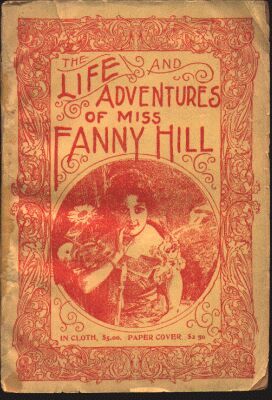In Memoirs v. Massachusetts, 383 U.S. 413 (1966), the Supreme Court held that the book John Cleland’s Memoirs of a Woman of Pleasure was not obscene. Before reaching its decision, the Court revisited its obscenity test — specifically, the requirement it had established in Roth v. United States (1957) that an obscene work must be “utterly without redeeming social value.”
Court of Massachusetts held that novel was obscene
In the underlying litigation, the Supreme Judicial Court of Massachusetts had held that the novel, more familiarly known as Fanny Hill, was obscene because it had only “minimal literary value,” and Roth did not specify that “a book . . . must be unqualifiedly worthless before it can be deemed obscene.” The novel’s publisher, G. P. Putnam’s Sons, had presented expert testimony by various English professors to demonstrate the book’s literary, historical, and social value, but the Massachusetts court had rejected those efforts as “strained.”
Court ruled that social value must be evaluated independently of other criteria
In the ruling, Justice William J. Brennan Jr., writing for a three-member plurality that included Chief Justice Warren E. Burger and Justice Abe Fortas, explained that reversal was appropriate because “a book cannot be proscribed unless it is utterly without redeeming social value” (emphasis in original). Social value, Brennan explained, must be evaluated “independently” of the other criteria, and therefore “can neither be weighed against nor cancelled by [the book’s] prurient appeal or patent offensiveness.” This view of social value was later expressly rejected in Miller v. California (1973).
Justices Hugo L. Black and Potter Stewart concurred, citing their dissents in earlier obscenity opinions. Justice William O. Douglas, in a separate concurrence, argued that “the First Amendment does not permit the censorship of expression not brigaded with illegal action,” and that, in any event, there had been no demonstration of obscenity in the Massachusetts litigation. Moreover, in the face of the defense experts put on by Putnam’s,“[t]he prosecution made virtually no effort to prove that the book was ‘utterly without redeeming social importance.’” Douglas explained that judges are “incompetent to render a judgment” as to literary worth, and so the record compelled the conclusion that the book was not obscene.
Dissenters disagreed with the plurality’s ‘new test’
Three justices — Tom C. Clark, Byron R. White, and John Marshall Harlan II — wrote separate dissents. Clark noted that Roth had defined obscenity as having “such slight social value . . . that any benefit . . . is clearly outweighed by the social interest in order and morality.” Clark objected that the plurality’s “new test” effectually eliminated any ban on obscenity by treating “social value” as an independent criterion. To support his argument, Clark gave a detailed description of the novel — in fact,so detailed that the New York Times said his “disapproving but remarkably vivid condensation of the story” would serve as an advertisement to new readers.
Taking a view similar to Clark’s, White observed that if a book “here and there contains a passage descriptive of character, geography or architecture, the book would not be ‘obscene’ under the social importance test.” He argued that “social importance” was “relevant only to determining the predominant prurient interest of the material.”
Harlan reasoned that federal obscenity laws should be limited to “hard-core pornography” (a category that did not cover the Memoirs), but that the states were entitled to more latitude in regulation of pornography.
This article was originally published in 2009. Simon Stern is Professor of Law and English at the University of Toronto. He has published articles and book chapters on obscenity, copyright, criminal procedure, legal fictions, and the history of the common law.

